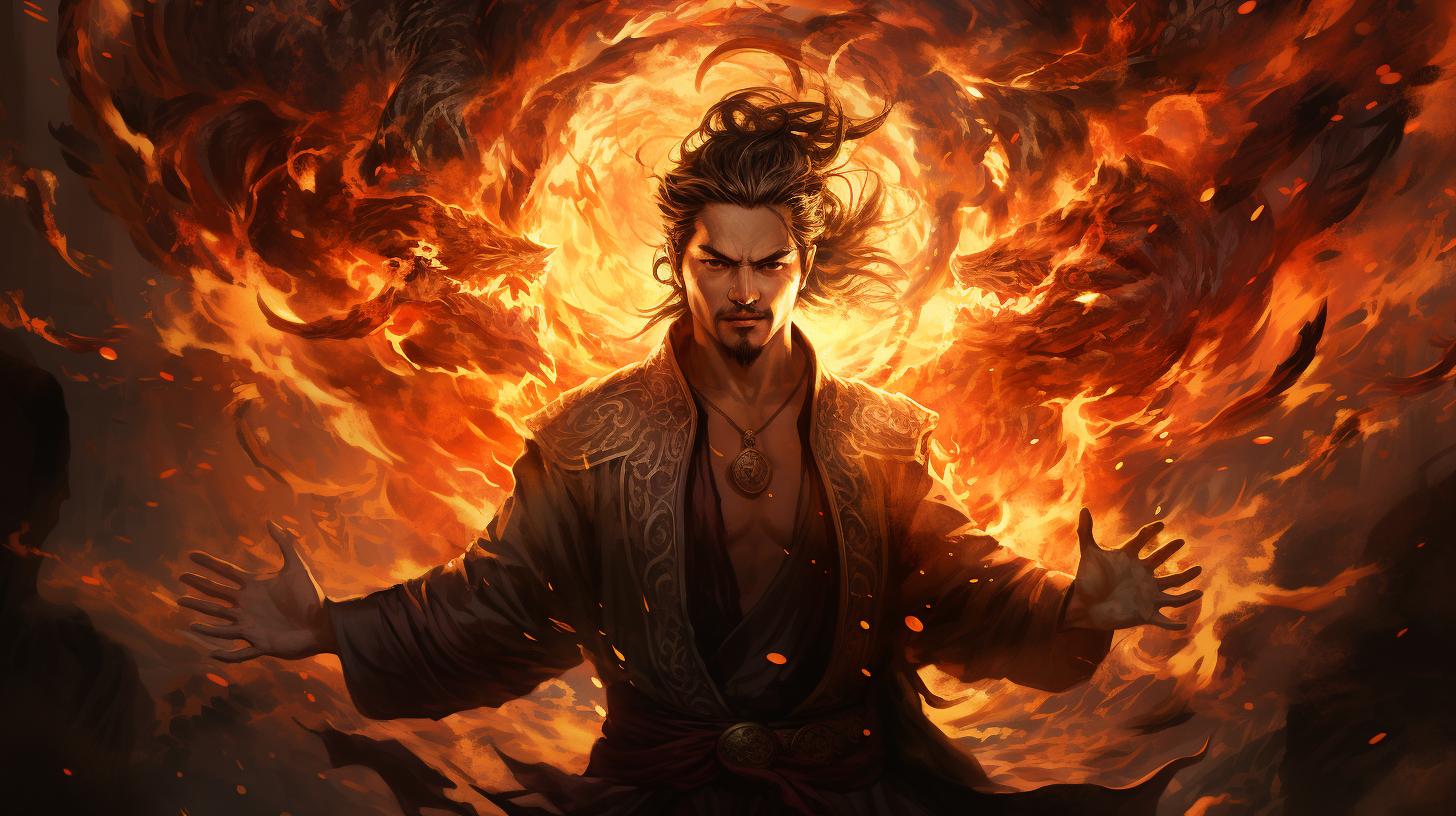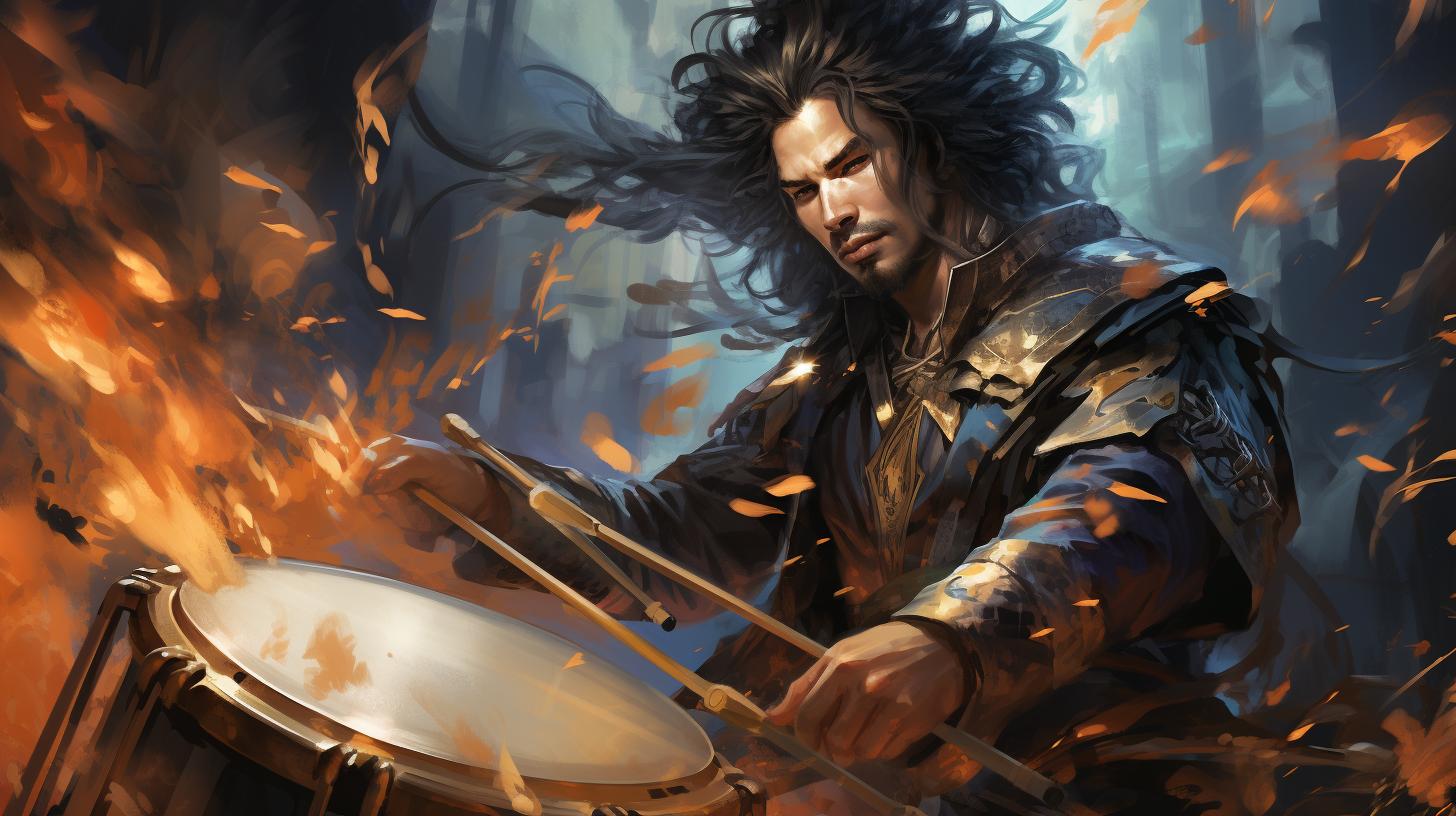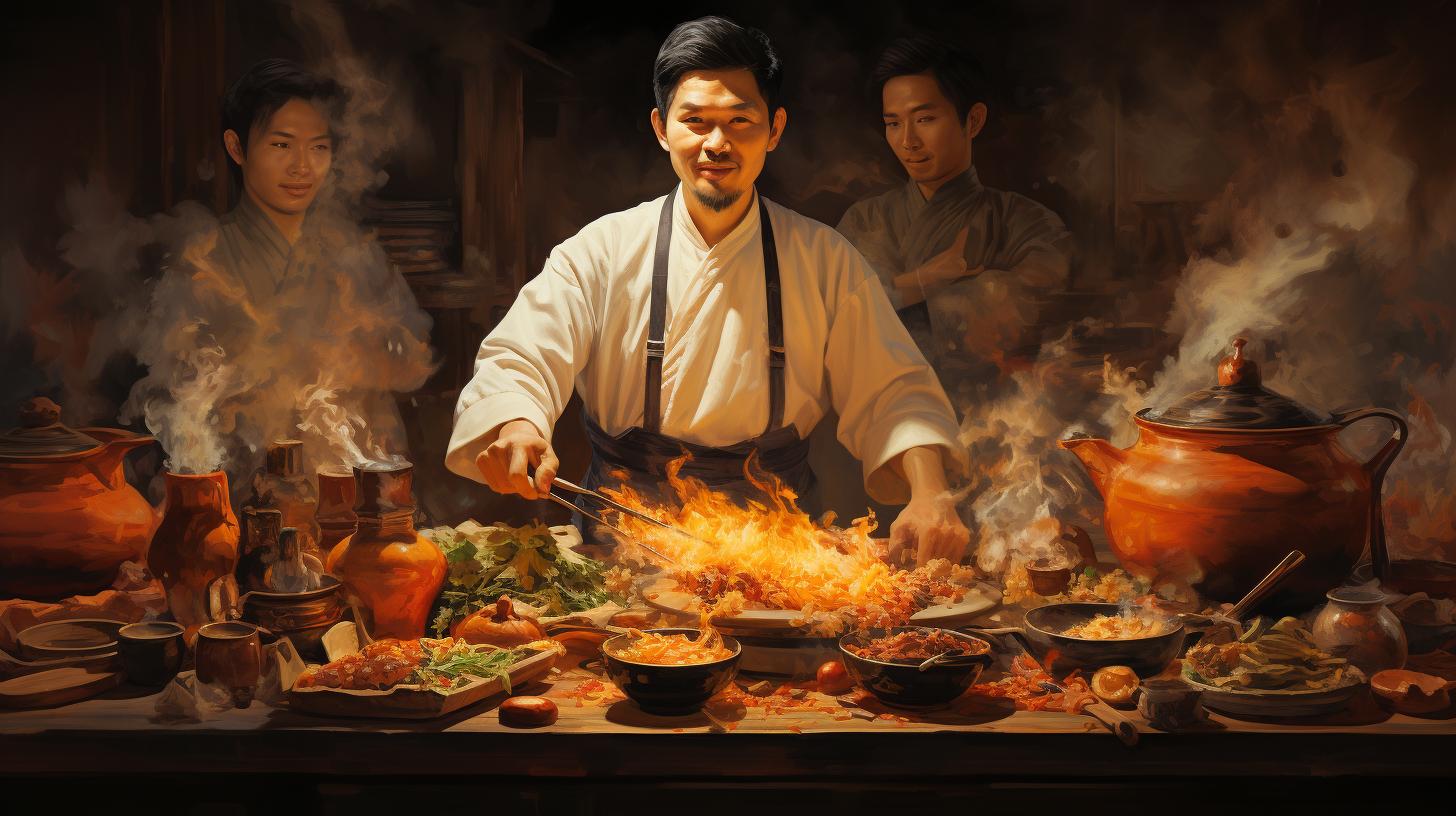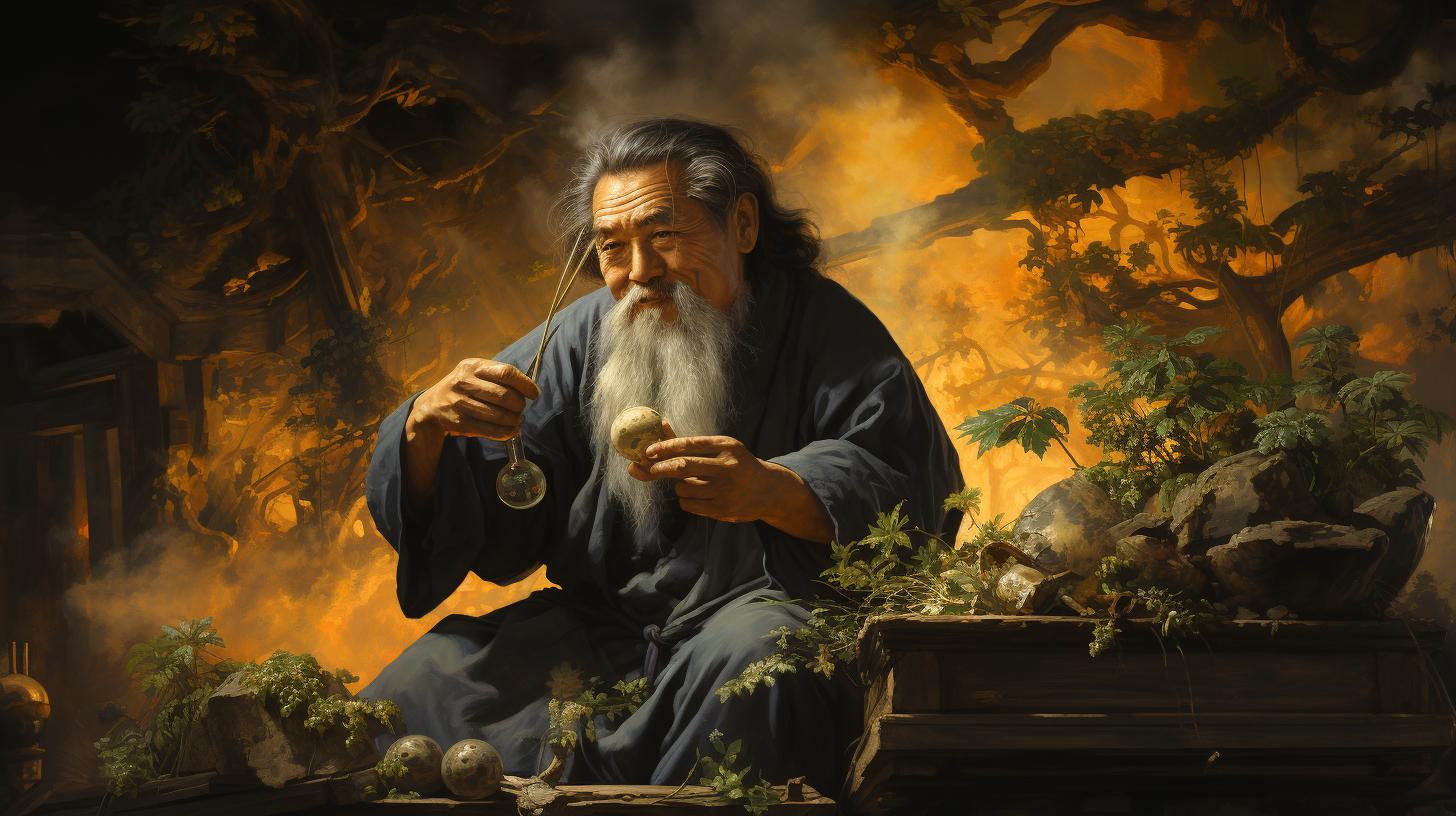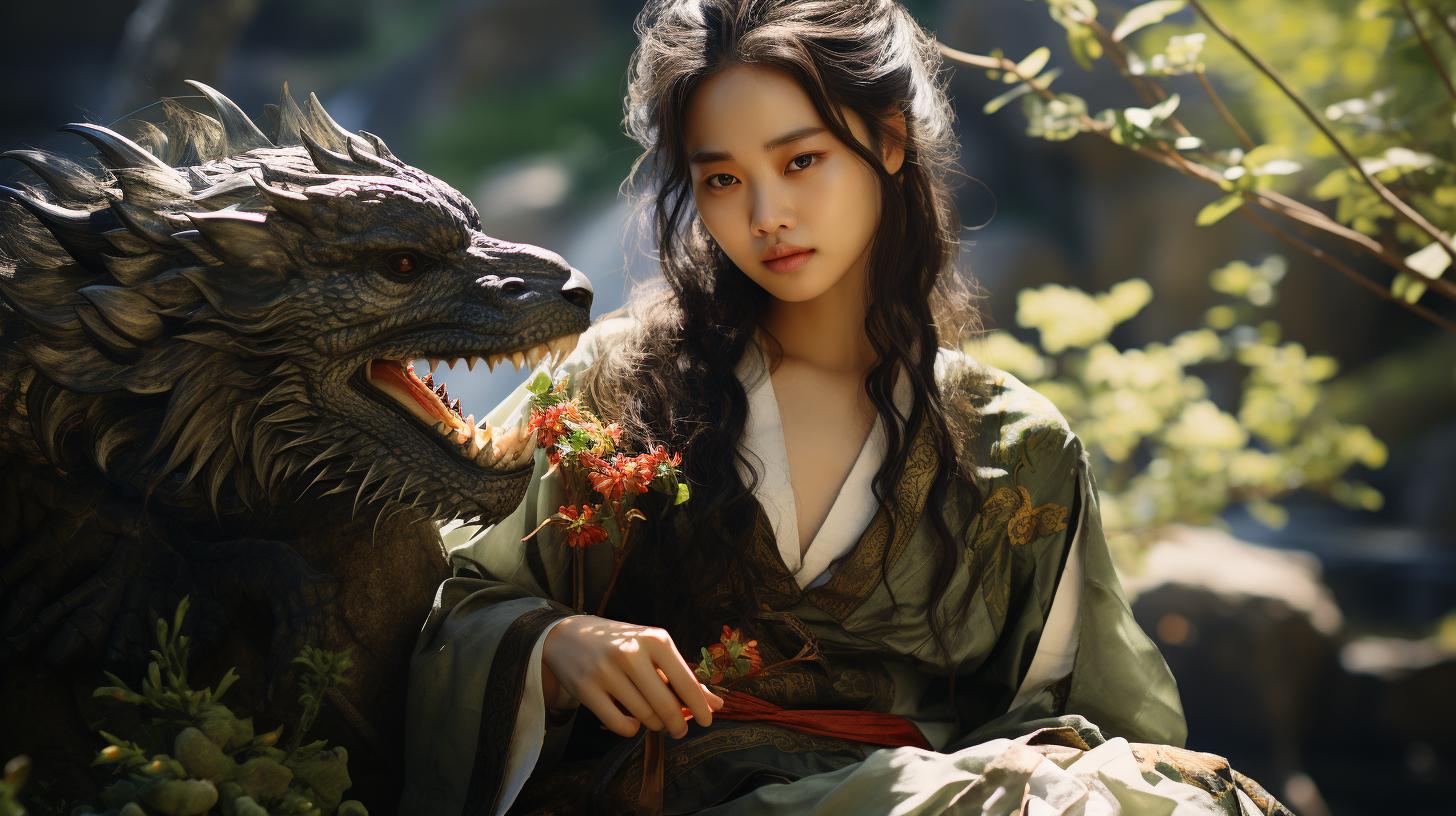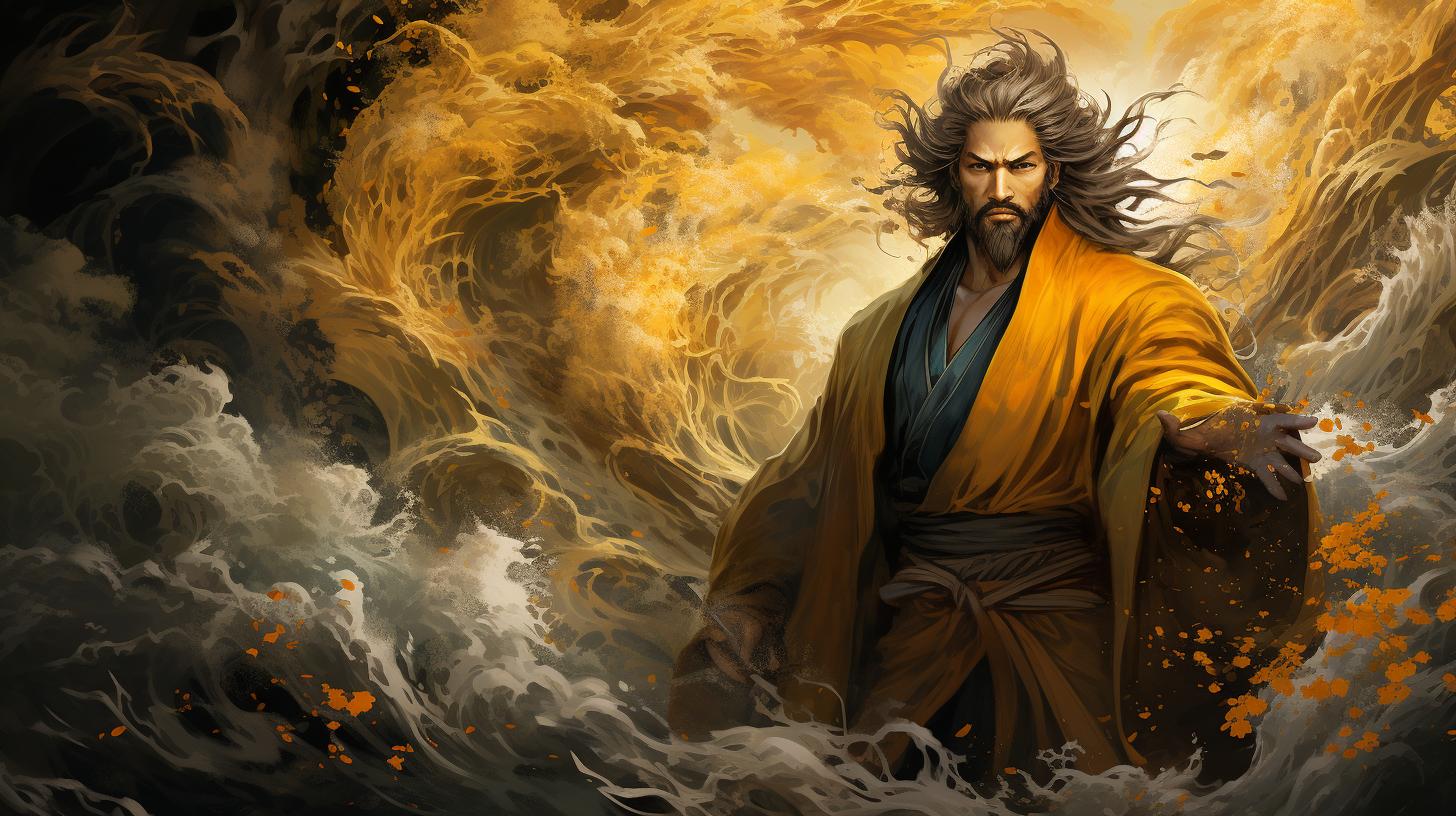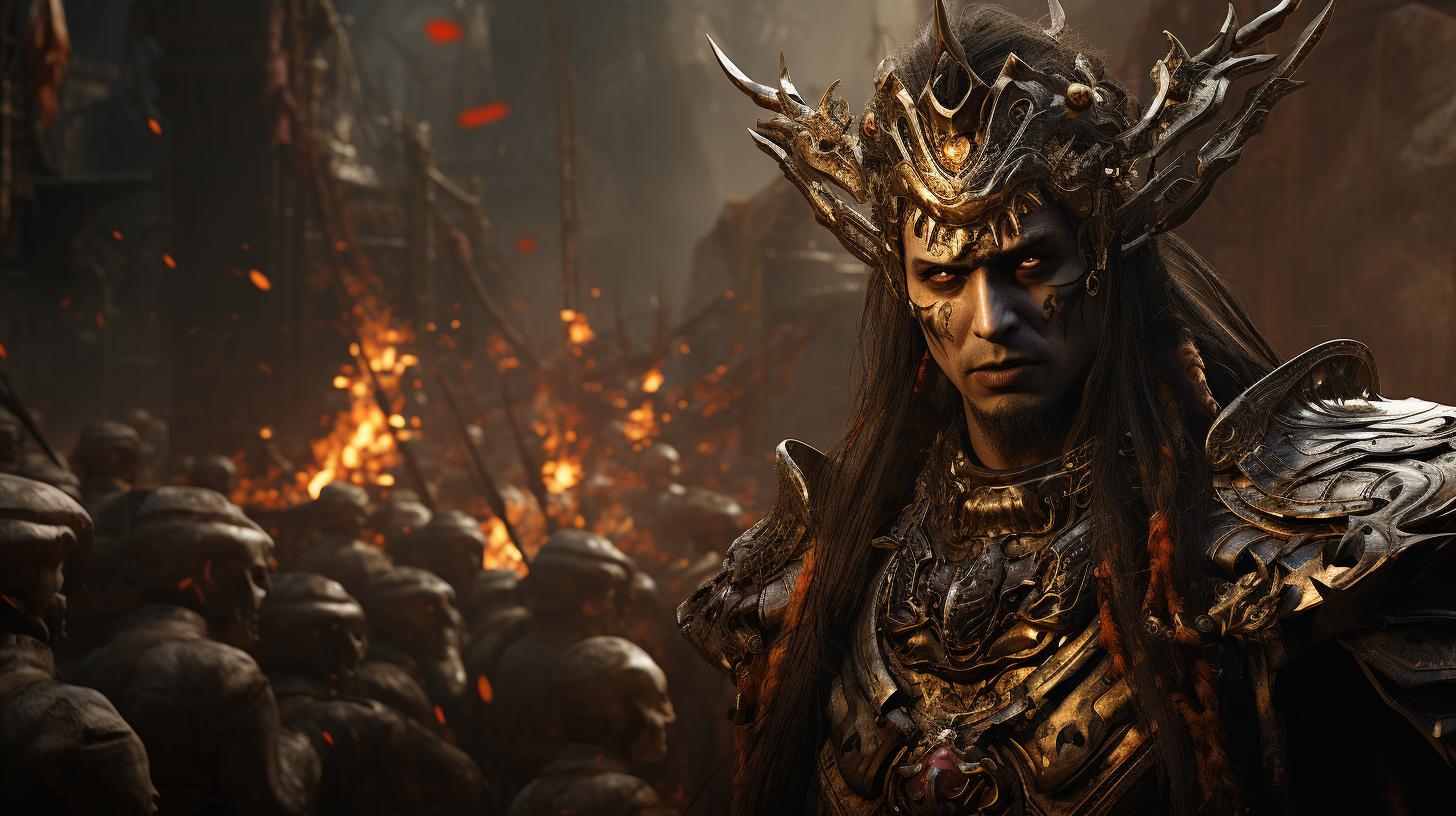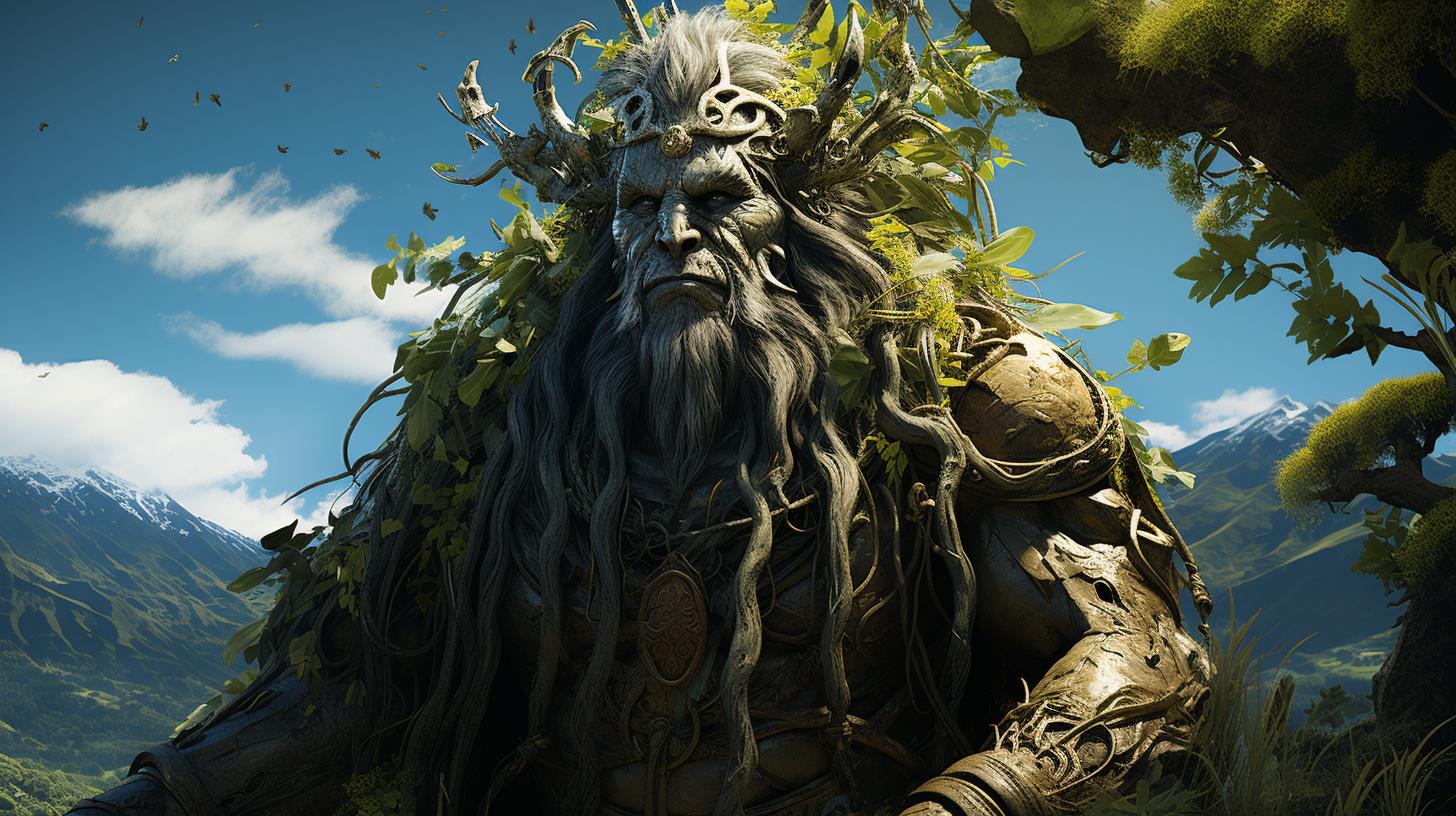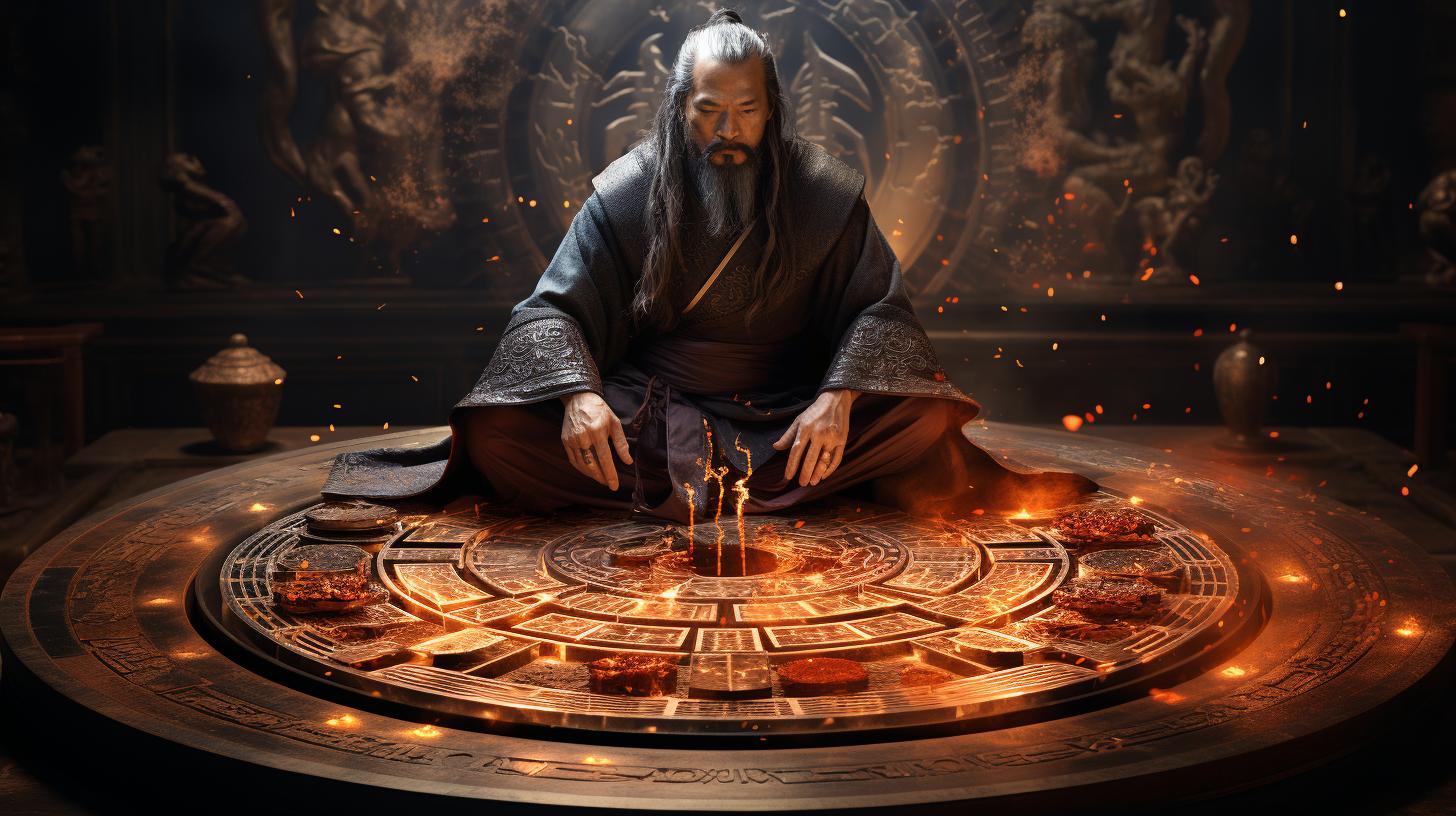Zhu Rong: The Mighty Chinese God of Fire – Unveiling Mythology and Legends
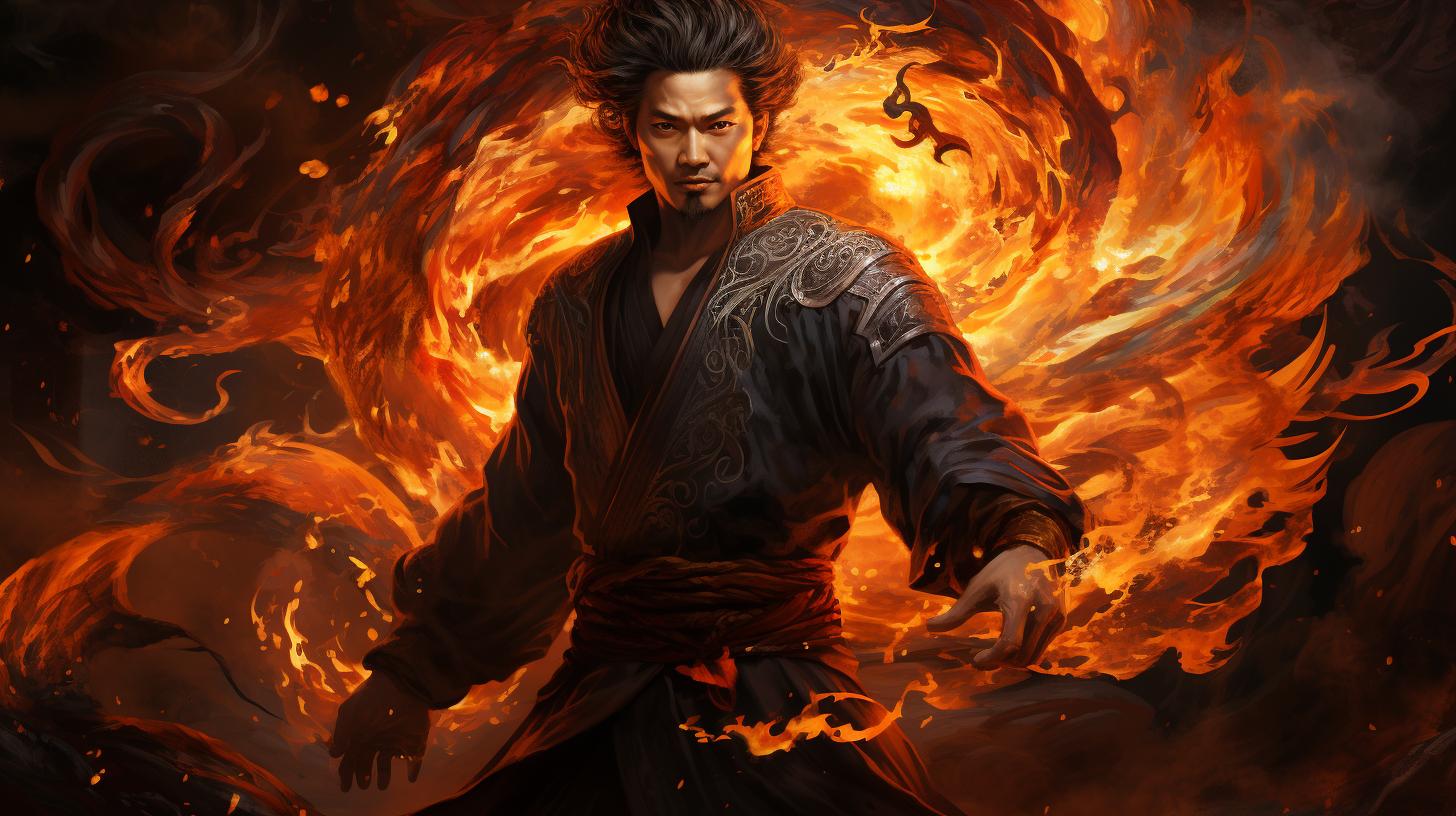
Zhu Rong, the Chinese god of fire, holds a significant place in ancient Chinese mythology. Known for his association with the south and fire-related myths, Zhu Rong is depicted as a proud figure donning armor and riding a tiger or dragons.
He plays a role in various important Chinese myths and is believed to have taught humans the use of fire. This article provides an overview of Zhu Rong’s background, his family lineage, symbolism, and his influence on Chinese culture and religion.
Explore the fascinating world of Zhu Rong and his mythological significance.
Overview of Zhu Rong Chinese God
Introduction to Zhu Rong
Zhu Rong is a prominent figure in Chinese mythology, revered as the god of fire and the south. He holds a significant place in Chinese religious beliefs and cultural traditions.
As a god associated with fire, Zhu Rong’s role in mythology extends beyond his elemental domain.
Historical Background of Zhu Rong
Within Chinese ancient history and mythology, Zhu Rong is believed to have descended from Gaoyang, also known as Zhuanxu, a heavenly god and historical figure. Zhu Rong is further recognized for inheriting royal lineages from various Chinese states, emphasizing his ancestral connections.
Role of Zhu Rong in Ancient Chinese Mythology
In ancient Chinese mythology, Zhu Rong plays a pivotal role in significant tales such as Nuwa, Gonggong, and the Great Deluge. He is revered as the teacher of fire to humanity, imparting knowledge on how to utilize this potent element.
Legends also credit Zhu Rong’s involvement in the separation of heaven and earth.
Mythological Accounts and Legends
The mythological accounts and legends surrounding Zhu Rong provide fascinating insights into the Chinese god of fire. This section explores Zhu Rong’s family and genealogy, his role as the god of fire and the south, and his connection to important Chinese myths.
Zhu Rong’s Family and Genealogy
Zhu Rong’s lineage can be traced back to his father, Gaoyang, also known as Zhuanxu. Gaoyang is a deity associated with the heavens and holds historical significance. Zhu Rong is believed to have inherited royal lineages from various states in China.
He is revered as an ancestor of the eight royal families in the state of Chu.
Zhu Rong as the God of Fire and the South
As the god of fire and the south, Zhu Rong embodies the essence of flames and heat. Depicted as a proud figure adorned in armor, he often rides a tiger or two dragons symbolizing fire and heat.
Zhu Rong’s deep connection to fire is believed to have played a crucial role in teaching humans how to use this elemental force effectively.
Zhu Rong’s Connection to Important Chinese Myths
Zhu Rong is intertwined with various significant Chinese myths.
One such myth involves his role in the epic battle against Gonggong, another powerful deity. This battle showcased Zhu Rong’s strength and prowess as he emerged victorious. While specific details of Zhu Rong’s involvement in other myths are not provided, his presence and influence are highly regarded in Chinese folklore and cultural narratives.
Symbolism and Representations of Zhu Rong
The symbolism surrounding Zhu Rong, the Chinese god of fire, is rich and captivating. Through art and iconography, his depictions offer insights into his mythological significance and cultural importance.
Depiction of Zhu Rong in Art and Iconography
Artistic representations of Zhu Rong showcase his powerful presence and divine attributes.
He is often depicted as a proud figure, adorned in armor, riding a tiger or sometimes two dragons symbolizing fire and heat. These portrayals highlight his role as the god of fire and capture his imposing nature.
Symbolism of Fire, Tigers, and Dragons
The symbolism associated with Zhu Rong is intricately linked to fire, tigers, and dragons. Fire represents his dominion and control over the element, as well as the transformative power it possesses.
Tigers symbolize strength, ferocity, and protection, emphasizing Zhu Rong’s mighty nature. Dragons, with their association with the heavens, symbolize his divine status and connection to the celestial realm.
Zhu Rong’s Role in Separating Heaven and Earth
Zhu Rong’s significance extends beyond fire and fierce symbolism.
He plays a crucial role in the separation of the heavens and the earth, a pivotal event in Chinese mythology. This feat highlights his immense power and influence, positioning him as a key figure in the cosmic order.
Zhu Rong’s role in the separation process showcases his pivotal role in shaping the world and maintaining harmony between the celestial and earthly realms.
Worship and Influence on Chinese Culture
Zhu Rong, the Chinese god of fire, holds immense importance in Chinese folk religion and has influenced various aspects of Chinese culture throughout history. This section explores the significance of Zhu Rong in worship practices and his enduring impact on Chinese society.
Zhu Rong’s Importance in Chinese Folk Religion
- Zhu Rong is revered as one of the major deities in Chinese folk religion, particularly in relation to fire and the southern region.
- Worshipers often offer prayers and rituals to Zhu Rong to seek protection from fires and to invoke his power in various fire-related endeavors.
- Temples dedicated to Zhu Rong can be found across China, and his followers celebrate festivals and events honoring his divine presence.
- Devotees believe that by paying homage to Zhu Rong, they can harness the power of fire and benefit from his guidance and blessings.
Modern References to Zhu Rong
In addition to his historical and religious significance, Zhu Rong continues to find relevance in modern culture, literature, and other forms of media.
Zhu Rong in Literature and Poetry
- Many Chinese authors and poets have referenced Zhu Rong in their works, depicting him as a symbol of strength, power, and transformation.
- His character often serves as a metaphor for overcoming obstacles and embracing the fiery passion within.
- By incorporating Zhu Rong into their literary creations, these writers pay tribute to the god’s enduring impact on Chinese mythology and culture.
Zhu Rong in Popular Culture and Media
- Zhu Rong’s dynamic character and association with fire make him a popular figure in modern artistic expressions, such as films, television shows, and video games.
- His depiction in popular culture further highlights his symbolic significance and captures the imagination of audiences worldwide.
- Zhu Rong’s portrayal in various media forms serves as a constant reminder of the profound influence he holds over Chinese spiritual beliefs and traditions.
.











